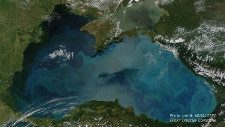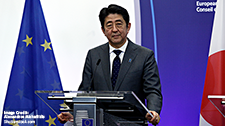Sino-Nordic Arctic Policy
With no signs of slowing, the warming of both the atmosphere and the oceans due to climate change is leading to a reduction in the amount of snow and ice in the Arctic. Not just affecting the natural world, a shinking polar ice cap presents new prospects for new trade routes and increased ease of access to the Arctic’s natural resources. Comprehensive and coordinated efforts are all necessary to balance the negative effects of climate change overall. However, as the nature of the world’s involvement in the Arctic is fundamentally shifting, a new set of policy and security challenges emerge. With very few mechanisms in place for managing potential challenges in this new Arctic milieu, inter-state conflict and contest are just around the corner.
The Sino-Nordic Arctic Policy Program (SNAPP) aims to fill this void as a collaborative platform for research and discussion that will enable our partner organizations in China and Europe to mutually research and explore strategies, policy options and security concerns regarding the Arctic. By defining current arrangements, and identifying potential areas of cooperation, ISDP seeks to serve as a proactive and preemptive conflict management platform which creates a safe realm for dialogue between China and Europe regarding energy, security and policy concerns in the Arctic.
Related News
Related Publications
-
Sweden and China: The Use of History and Mismatched Expectations
Sweden was not the first country in the West that recognized the People’s Republic of China, but it became the first in the West to establish formal diplomatic relations in […]
-
China, Russia and Undersea Cable Vulnerability: Shoring Up Protection
The global undersea cable network, carrying up to 99 percent of international internet traffic, faces increasing vulnerabilities. Recent incidents in the Baltic Sea and around Taiwan highlight the urgent need […]
-
Taiwan and International Organizations – Between Security, Cooperation and Identity
International organizations are a historical point of contestation between the People’s Republic of China (PRC) and the Republic of China (ROC), today commonly known as Taiwan. As of 2024, only […]
-
China as a Black Sea Actor: An Alternate Route
China’s international role has expanded rapidly in the last decades, and the Greater Central Asian region, Europe, and the Middle East, to which the Black Sea region (BSR) connects, are […]
-
Strong Europe-Japan Relations are a Legacy of Shinzo Abe
Abe was a firm proponent of strengthening a free, open and rules-based Indo-Pacific. Not only was he steering Japan away from total dependence on the U.S. for its security, but […]




